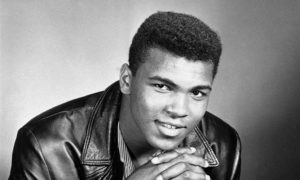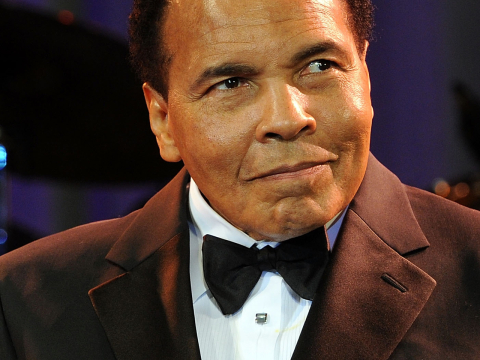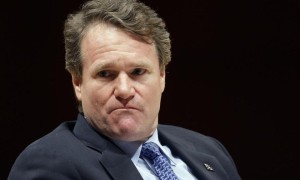As difficult as it is to maintain finances when the amount is meager imagine how hard it is to maintain them when it’s massive. Muhammad Ali, the gentle giant he was left his eatthly body with a legacy of love, kindness and a spirit of togetherness, however it’s because of his kindness and his trusting nature he died almost penniless. So many celebrities are masters at their craft but are not all are apt to mastering their money.
Now knowing that money can bring the best and worst out of people and many people including the elite can get taken by savvy people who only have one goal and that’s to swindle them out of their hard earned finances. It could be anyone and anything from donating to a “cause” or investing into a bright idea right down to that family member who feels like your money is “owed” to them because you’re related. Even the most financial conscious people can become a victim of the money hungry predators. The Champ may have been another one who just trusted too many with his wealth and unfortunately it was not a wise decision and to help is one thing but to hinder is definitely another.
Read more about how Muhammad Ali may have passed nearly broke as reported by Financial Juneteenth:

Photo Credit: Tim Shanahan
The greatest boxer who ever lived, one of the greatest athletes of all-time, known to the world as “The Greatest”, Muhammad Ali was a wizard in the ring, but he was a muggle when it came to finances.
It is estimated that Ali took in over $80 million during his life. Most of that money is gone. In his tell-all book “Running with the Champ,” Ali’s close friend and confidant Tim Shanahan explains how a boxing legend of Ali’s stature and wealth could lose such a massive amount of money.
Shanahan said one of the primary draws on Ali’s bank account was his relatives, which included his four wives, seven daughters, and two sons. He felt guilty about having affairs, multiple marriages, and children who were born out of wedlock. As a result, he “never said no when relatives asked him for cash.” It was kind of like penance that came with a $64,000 a month price tag.
Ali was also not a savvy businessman. He didn’t squander his money, but he just didn’t have the golden touch. He opened a chain of Champ Burger restaurants and pushed Mr. Champ soda, but both were destined to fail. The Ali’s Trolly chicken and burger restaurant met with the same fate in only 18 months.
Wanting to give back, Ali set up Muhammad Ali Professional Sports Inc. to find young athletes from poor areas and recruit them. After a couple of years, the FBI showed up looking for $21 million in missing money. Ali’s “friend”, Harold Smith, spent five years in federal prison for the crime, but the money was gone.
Ali trusted everyone he did business with. Shanahan says that he was too proud to admit that he may have made a bad judgment on somebody’s character, so instead he just trusted them even when it was plain to see that they were ripping him off. Shanahan recalls that Ali’s inner circle at his Deer Lake Chicago training camp would submit bogus receipts for meals, clothes, and drinks and had no problem fleecing the champ.
Even his muslim brothers took advantage of him. In fact, it was the theft of his money by the Nation of Islam that brought his dire financial situation to light. He had $2.5 million in an escrow account to pay his taxes. It was managed by Herbert Muhammad, the son of Nation of Islam leader Elijah Muhammad. The money disappeared.
Despite the many issues, Ali was not dumb or ignorant, he just didn’t want to believe it was happening. He once told Shanahan, “I never had any trouble with my white brothers around me. It’s always my black brothers who try and screw me.”
Even so, Ali did not hold a grudge. He was ferocious in the ring, but outside it, he was a soft, gentle spirit full of forgiveness. “No matter how bad the situation turned out to be…He didn’t seem angry or vengeful, just depressed that he had been taken advantage of,” Shanahan wrote.
Ali often asked Shanahan, “Who am I to judge anyone else?” And, he told him that “Allah was keeping a ‘tally sheet’ and that he wanted to put more good points on it than bad.”
Source: Financial Juneteenth















































































































































































































































![[Video] Chicago Police Officers Caught On Video Telling Two Black Men "We Kill Mother F**kers"](https://earhustle411.com/wp-content/uploads/2018/07/evil-cop-3-300x180.jpg)
![[Video] Chicago Police Officers Caught On Video Telling Two Black Men "We Kill Mother F**kers"](https://earhustle411.com/wp-content/uploads/2018/07/evil-cop-3-80x80.jpg)












![[Video] White Woman Calls The Cops On Black Real Estate Investor, Cops Threaten To Arrest Her For Harassing Him](https://earhustle411.com/wp-content/uploads/2018/05/nosy-neighbor-300x180.png)
![[Video] White Woman Calls The Cops On Black Real Estate Investor, Cops Threaten To Arrest Her For Harassing Him](https://earhustle411.com/wp-content/uploads/2018/05/nosy-neighbor-80x80.png)


![White Scientist Says The Black Community Is Being Targeted By The Medical System, They Are Deliberatly Being Poisoned [Video]](https://earhustle411.com/wp-content/uploads/2016/05/mike-adams-300x180.jpg)
![White Scientist Says The Black Community Is Being Targeted By The Medical System, They Are Deliberatly Being Poisoned [Video]](https://earhustle411.com/wp-content/uploads/2016/05/mike-adams-80x80.jpg)








![Teenage Girl Shot In Her Stomach Three Times But Took Time To Post To Facebook [ Video]](https://earhustle411.com/wp-content/uploads/2016/02/Gangster-chick-300x180.jpg)
![Teenage Girl Shot In Her Stomach Three Times But Took Time To Post To Facebook [ Video]](https://earhustle411.com/wp-content/uploads/2016/02/Gangster-chick-80x80.jpg)







